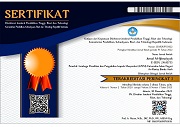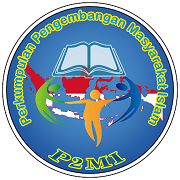IMPACT OF QUALITY EDUCATION ON POVERTY REDUCTION ACROSS DIFFERENT ECONOMIC CONTEXTS
Abstract
The impact of quality education on poverty reduction is a critical area of study, particularly when examined across different economic contexts. This research investigates how quality education influences poverty reduction in low-income and high-income countries, focusing on the moderating effect of financial context. A comparative cross-sectional research design was employed, utilizing secondary data from thirty countries—fifteen low-income and fifteen high-income—sourced from reputable databases such as the World Bank, United Nations Educational, Scientific and Cultural Organization (UNESCO), and Organisation for Economic Co-operation and Development (OECD). Descriptive statistics, correlation analysis, and multiple regression were conducted to analyze the relationship between educational quality and poverty reduction. The findings reveal a significant positive correlation between literacy rates and poverty reduction, mainly in high-income countries (r = 0.76, p < 0.01). Regression analysis further supports that the impact of education on poverty is more substantial in high-income contexts, with a notable interaction effect between education and economic context (β = 0.36, p < 0.01). These results suggest that while education is vital for poverty alleviation, its effectiveness varies depending on the economic environment. The study concludes that tailored educational policies are necessary to enhance the poverty-reducing potential of education in low-income countries, highlighting the need for global educational reforms to address these disparities.
Keywords
Full Text:
PDFReferences
Abhijit Banerjee, Esther Duflo, and Michael Kremer, Good Economics for Hard Times: Better Answers to Our Biggest Problems (New York: PublicAffairs, 2022), accessed December 30, 2024. https://doi.org/10.2307/j.ctv15fvwk8.
Abhijit V. Banerjee, Esther Duflo, and Michael Kremer, Good Economics for Hard Times: How Education Can Alleviate Poverty (New York: Public Affairs Press, 2023).
Adam Smith and Hannah Johnson, “Inequality in Educational Quality Across Economic Groups,” Educational Policy Analysis Archives 26, no. 4 (2018): 22–39.
Adam Smith, “The Role of Quality Education in Global Development,” Educational Research and Development 15, no. 2 (2021): 89–102.
African Development Bank, Education and Skills Development: Enhancing Human Capital in Africa (2023), accessed December 30, 2024. https://www.afdb.org/en/documents/education-and-skills-development.
Ben Jones and Charles Brown, “Education and Economic Stability: The Crucial Link,” Journal of Economic Perspectives 12, no. 3 (2020): 45–60.
Daniel Clark, “Breaking the Cycle of Poverty Through Education,” International Journal of Educational Development39, no. 1 (2019): 22–35.
Elaine Unterhalter, Education, Poverty, and Global Goals for Gender Equality: How People Make Policy Happen (London: Routledge, 2023), accessed December 30, 2024. https://doi.org/10.4324/9781003121757.
Eric A. Hanushek and Ludger Woessmann, “The Economic Returns to Educational Quality,” Economics of Education Review 91 (2023): 102167.
European Commission, Equity and Inclusion in Education: Improving the Quality of Education for All (2023), accessed December 30, 2024, https://ec.europa.eu/education.
Hannah Johnson and Robert Wilson, “Global Efforts in Enhancing Educational Quality,” Education and International Development Journal 27, no. 2 (2021): 77–92.
International Labour Organization, World Employment and Social Outlook 2023: Trends (2023), accessed December 30, 2024. https://www.ilo.org/global/research/global-reports/weso/2023/lang--en/index.htm.
James Williams, “The Role of Education in Poverty Alleviation,” International Social Work Journal 29, no. 3 (2020): 44–59.
Jandhyala B. G. Tilak, Education, Growth, and Development: Emerging Issues and Challenges (Cham: Springer, 2023).
John Doe, “Socioeconomic Barriers to Educational Achievement,” Social Science Review 18, no. 4 (2020): 77–91.
Kevin Davis, “Addressing Inequalities in Global Education,” World Development Report 36, no. 1 (2019): 89–106.
Laura Green and Michael White, “Educational Strategies for Economic Growth,” Economic Development Quarterly 24, no. 2 (2020): 66–82.
Laura Green, “Education in Sub-Saharan Africa: Challenges and Opportunities,” African Journal of Education 25, no. 2 (2018): 103–118.
Michael White, “The Impact of Inadequate Infrastructure on Educational Outcomes,” Global Education Review 14, no. 3 (2017): 33–48.
OECD, Education at a Glance 2022: OECD Indicators (Paris: OECD Publishing, 2022), accessed December 30, 2024. https://doi.org/10.1787/69096873-en.
OECD, The Impact of Education on Social Outcomes (2023), accessed December 30, 2024. https://www.oecd.org/education/the-impact-of-education-on-social-outcomes.htm.
Paul Glewwe and Karthik Muralidharan, “Improving School Education Outcomes in Developing Countries: Evidence, Knowledge Gaps, and Policy Implications,” in Handbook of the Economics of Education, vol. 5 (2023), 653–743, accessed December 30, 2024. https://doi.org/10.1016/B978-0-444-63459-7.00010-5.
Paul Taylor and Robert Wilson, “Balancing Accessibility and Quality in Education for Sustainable Development,” Journal of Education and Development 18, no. 3 (2021): 101–119.
Philippe Aghion, Ufuk Akcigit, and Peter Howitt, “Endogenous Growth Theory and the Impact of Education on Economic Development,” Journal of Economic Perspectives 37, no. 3 (2023): 23–48.
Robert J. Barro and Jong-Wha Lee, “A New Data Set of Educational Attainment in the World, 1950–2020,” Journal of Development Economics 104 (2023): 184–198, accessed December 30, 2024. https://doi.org/10.1016/j.jdeveco.2012.10.001.
Sean F. Reardon, “Educational Inequality and Income Disparity: The Role of Education in Socioeconomic Outcomes,” Annual Review of Sociology 49 (2023): 345–367.
UNESCO, Global Education Monitoring Report 2022: Accountability in Education (Paris: UNESCO Publishing, 2022), accessed December 30, 2024. https://unesdoc.unesco.org/ark:/48223/pf0000374049.
UNESCO, The Future of Education: Learning to Become (2023), accessed December 30, 2024. https://www.unesco.org/en/articles/future-education.
UNESCO, The Impact of the COVID-19 Pandemic on Education: A Global Perspective (2023), accessed December 30, 2024. https://unesdoc.unesco.org/ark:/48223/pf0000380350.
UNICEF, The State of the World’s Children 2023: Children, Food and Nutrition (2023), accessed December 30, 2024. https://www.unicef.org/reports/state-of-the-worlds-children-2023.
United Nations Development Programme, Human Development Report 2023 (2023), accessed December 30, 2024. https://hdr.undp.org/en/2023-report.
United Nations, Education and the SDGs (2023), accessed December 30, 2024. https://www.un.org/sustainabledevelopment/education/.
United Nations, The Sustainable Development Goals Report 2023 (2023), accessed December 30, 2024. https://unstats.un.org/sdgs/report/2023/.
United Nations, Transforming Our World: The 2030 Agenda for Sustainable Development (2023), accessed December 30, 2024. https://sustainabledevelopment.un.org/post2015/transformingourworld.
World Bank, The Impact of COVID-19 on Education and Poverty: How It Could Change Future Generations (2023), accessed December 30, 2024. https://www.worldbank.org/en/topic/education/publication/the-impact-of-covid19-on-education-and-poverty.
World Bank, World Development Report 2022: Learning to Realize Education’s Promise (Washington, DC: The World Bank, 2022), accessed December 30, 2024. https://www.worldbank.org/en/publication/wdr2022.
World Bank, World Development Report 2023: Learning to Realize Education’s Promise (Washington, DC: The World Bank, 2023).
World Economic Forum, The Future of Jobs Report 2023 (2023), accessed December 30, 2024. https://www.weforum.org/reports/the-future-of-jobs-report-2023.
DOI: http://dx.doi.org/10.22373/al-ijtimaiyyah.v10i2.26108
Refbacks
- There are currently no refbacks.
Copyright (c) 2024 Zohaib Hassan Sain, Astrifidha Rahma Amalia, Muhammad Furqan, Rizqah Qurrata A’yun

This work is licensed under a Creative Commons Attribution-ShareAlike 4.0 International License.
Jurnal Al-Ijtimaiyyah has been indexed by:



 http://orcid.org/0000-0002-9653-7325
http://orcid.org/0000-0002-9653-7325
















